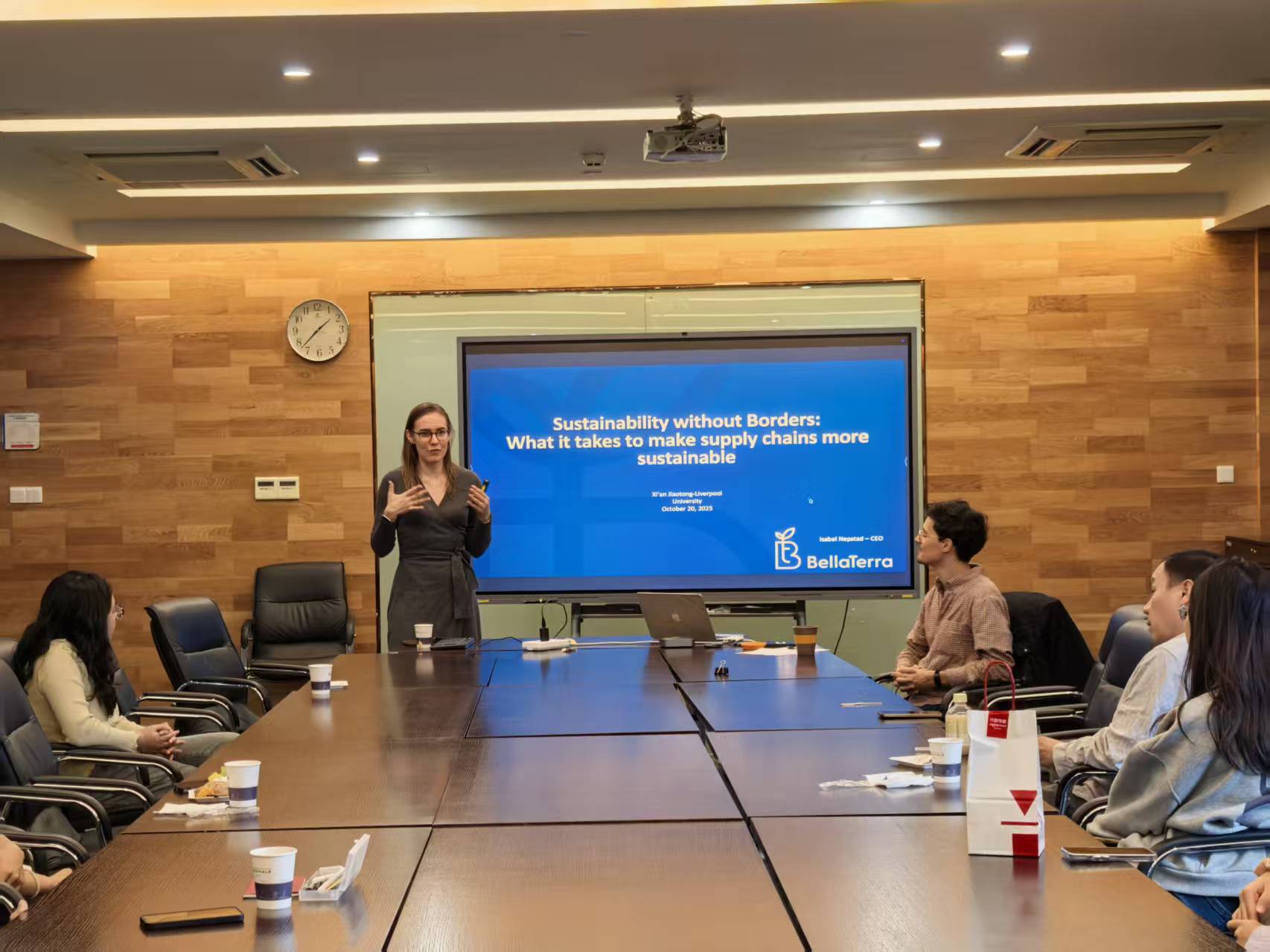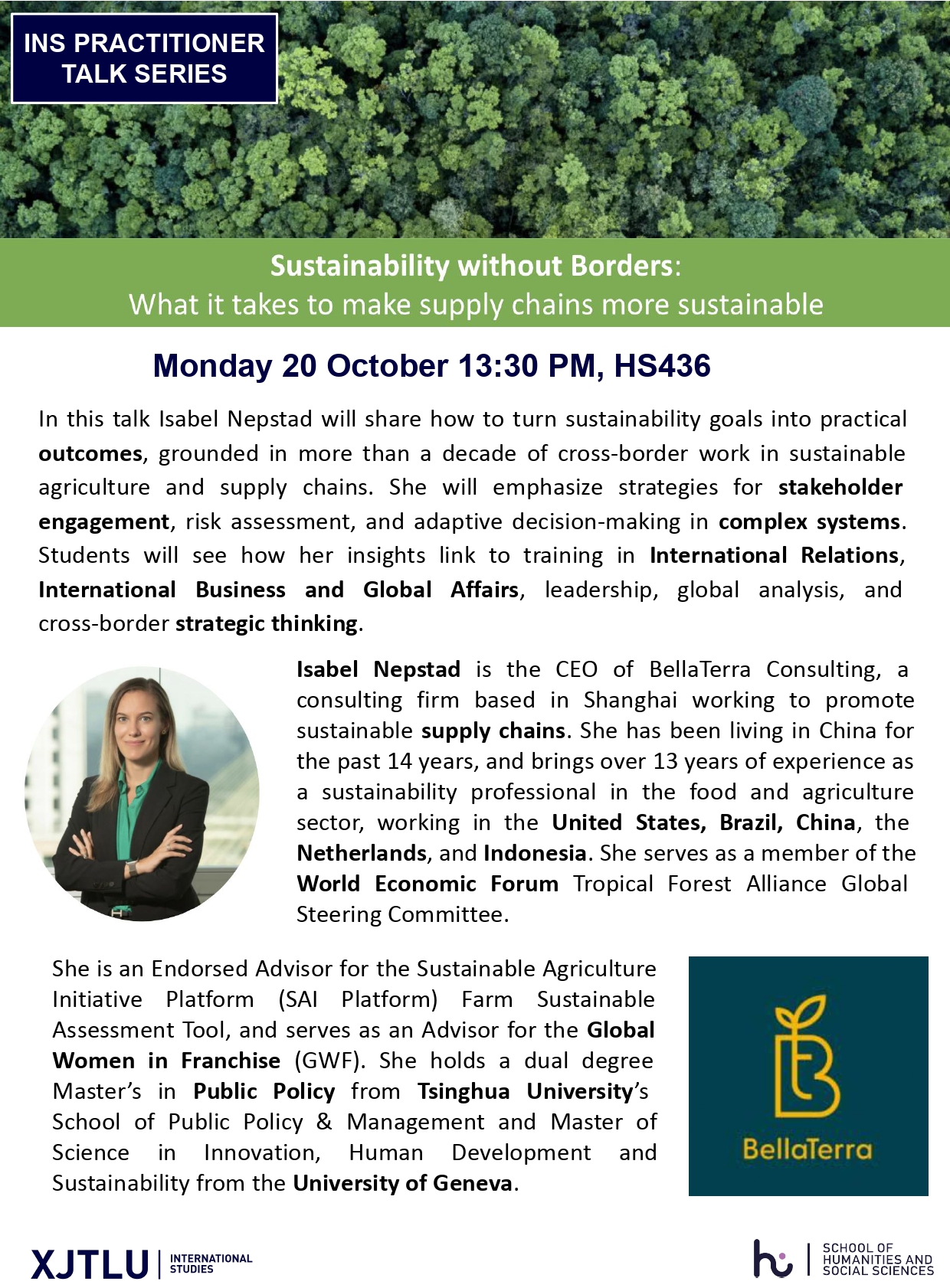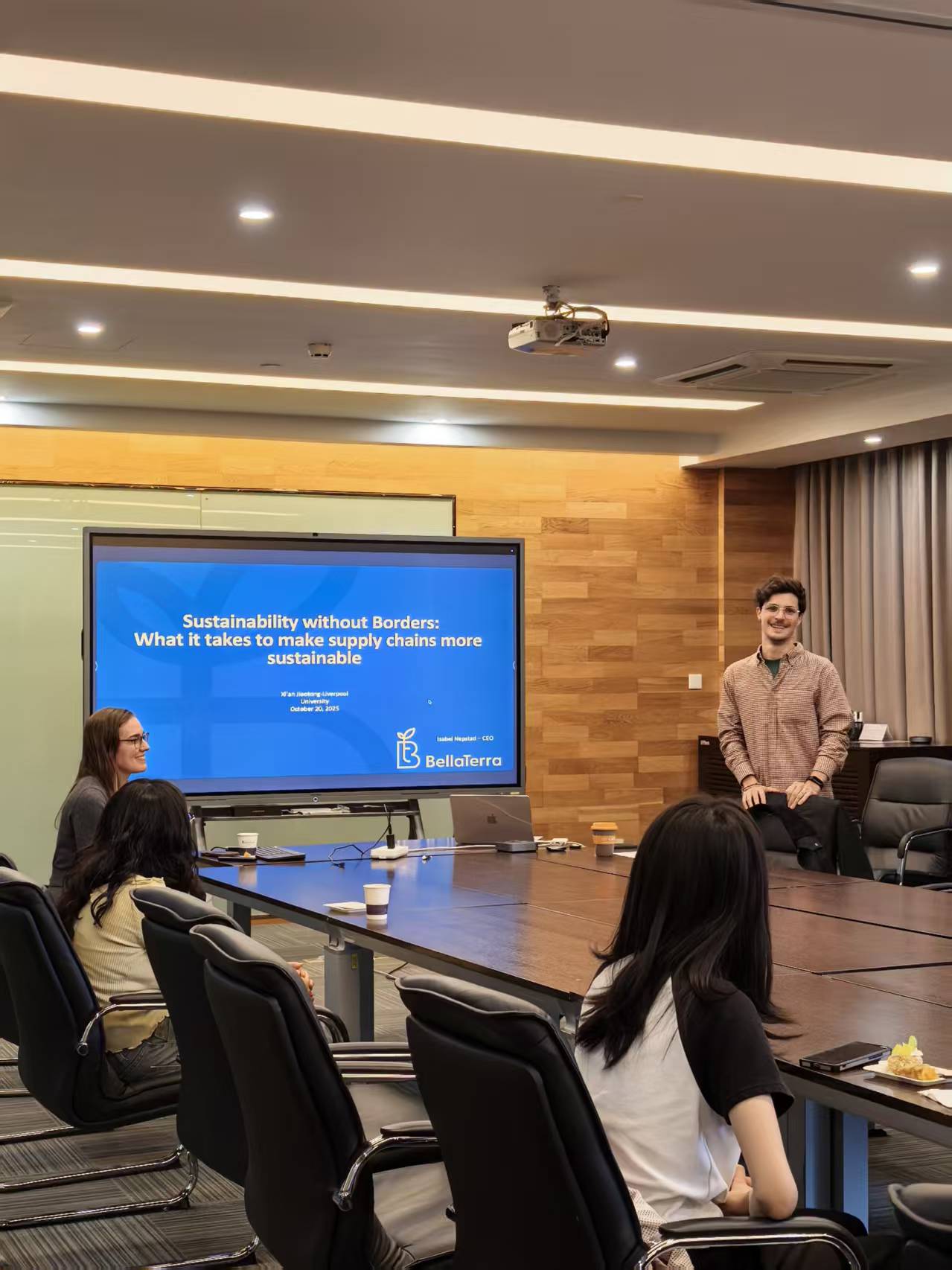19 Nov 2025
On Monday 20 October 2025, we had the pleasure of welcoming Isabel Nepstad to our International Studies Practitioner Talk Series.

Last week, the Department of International Studies at Xi’an Jiaotong-Liverpool University (XJTLU) hosted Isabel Nepstad, CEO of BellaTerra Consulting, for a Practitioner Talk titled “Sustainability without Borders: What It Takes to Make Supply Chains More Sustainable.” Isabel serves on the World Economic Forum’s Tropical Forest Alliance Global Steering Committee and as an Endorsed Advisor for the SAI Platform. She holds a Master’s in Public Policy from Tsinghua University and a Master’s in Innovation, Human Development and Sustainability from the University of Geneva.
With over a decade of experience advancing responsible sourcing in the agrifood sector, Isabel has worked in the United States, Brazil, China, the Netherlands, and Indonesia, leading initiatives that link environmental governance, trade, and certification. BellaTerra Consulting supports the localization of global sustainability standards in China and other emerging markets, including the Round Table on Responsible Soy (RTRS), ProTerra Foundation, Beef on Track, and the SAI Platform’s Farm Sustainability Assessment (FSA).

During her talk, Isabel explained the environmental challenges connected to global agricultural trade and how sustainability certification systems function as governance tools that translate global climate and biodiversity goals into corporate and producer-level practices. She emphasized that while standards developed in the RTRS and the ProTerra offer frameworks for traceability and deforestation-free supply chains, their impact depends on local capacity, stakeholder engagement, and adaptive management. Drawing examples from her cross-border work in Brazil and China, she highlighted both the opportunities and barriers to ensuring credibility, inclusion, and measurable outcomes in certification schemes.
The discussion with students touched on the politics of standard-setting, the challenges of monitoring compliance, and how global sustainability governance increasingly depends on collaboration between business, civil society, and governments. Isabel also shared career advice for students seeking to work at the intersection of sustainability, trade, and policy implementation.

The talk directly complements the skills taught in our International Relations and International Business & Global Affairs (IBGA) programs. Students in these degrees develop skills in policy analysis, stakeholder mapping, cross-border negotiation, and evidence-based decision-making, all of which are crucial for understanding and shaping sustainability transitions in a globalized world. Through exposure to practitioners, students gain theoretical grounding and a sense of how international cooperation and corporate responsibility intersect in practice.
We thank Isabel for sharing her deep insights on making global supply chains more sustainable and for inspiring our students to think critically about the role of certification, accountability, and cooperation in achieving global environmental goals.
Contributed by the Department of International Studies
19 Nov 2025







